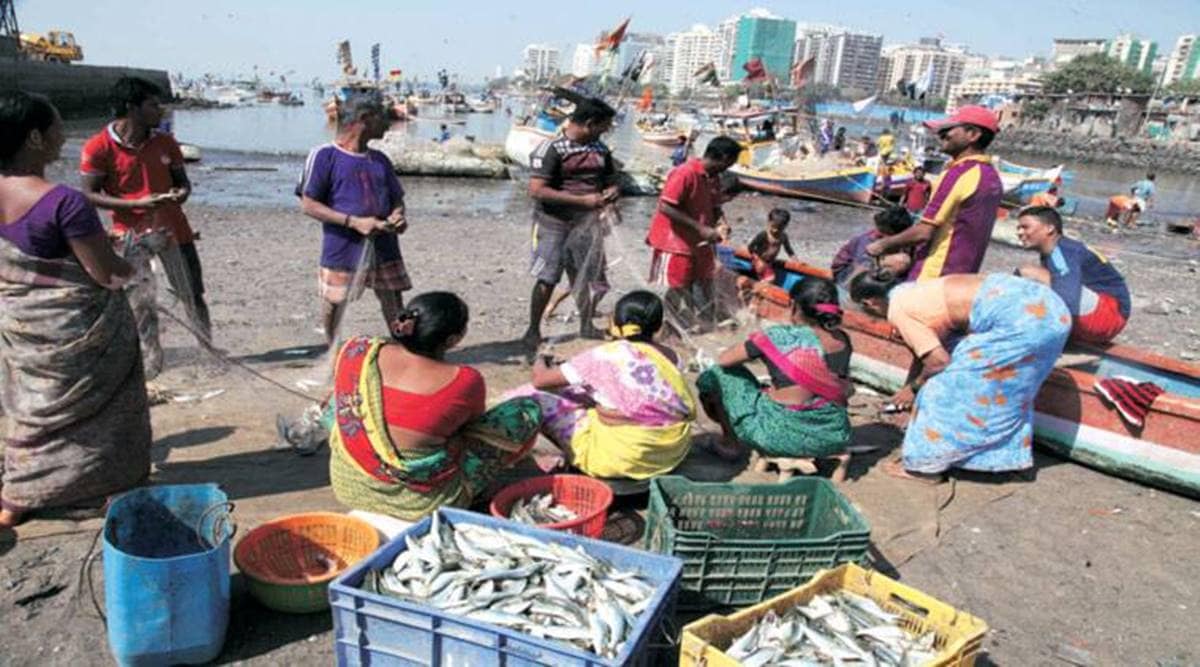 In September, the BMC had approached MCZMA seeking a clearance for additional reclamation of 21 hectare for the project. (Representational)
In September, the BMC had approached MCZMA seeking a clearance for additional reclamation of 21 hectare for the project. (Representational)The fishing community in Worli Koliwada has alleged that Central Marine Fisheries Research Institute (CMFRI), which conducted a study on the impact of the coastal road project on their livelihood, has furnished “false and inaccurate information”.
The BMC has relied on the study in its application before the Maharashtra Coastal Zone Management Authority (MCZMA) while seeking an amendment in Coastal Regulation Zone (CRZ) clearance for the coastal road project.
The fisherfolk have said that the CMFRI’s claim that the fishing community “may get temporarily affected during construction phase”, is completely untrue.
In September, the BMC had approached MCZMA seeking a clearance for additional reclamation of 21 hectare for the project. As per the original plan, BMC had got permission to reclaim 90 hectare but now it has sought to reclaim 111 hectare.
According to BMC data, 64 hectare has been reclaimed till October 15 for the project, mostly at Worli, Haji Ali and Priyadarshini Park. The civic body is constructing 10.58-km coastal road from Princess Street to Worli end of Sea Link, spending Rs 12,700 crore.
Livelihood at risk
With over 63 hectare already reclaimed for the coastal road project, damage has already been caused to intertidal fishing areas on which traditional fisherfolk are dependent. The community fears that the reclamation will cause irreversible damage to fish breeding areas, putting their livelihood at risk. Now, since the BMC wants to reclaim additional area in the sea, the risk of wiping out these intertidal zones is greater. The BMC needs to conduct studies to find out the extent of the impact on these artisanal occupations before going ahead with new reclamation.
On November 2, Worli Koliwada Nakhwa Matsyvavsay Sahakari Society Limited had written to MCZMA alleging that the CMFRI report — ‘A baseline study on impact of coastal road on fisheries and fisher livelihood’ of August 2020 — has misrepresented facts.
“All information, photographs of boats and fish-catch taken during the survey, have been excluded from the report. The CMFRI report says that while the near shore area is regularly fished, it is not considered as a major fishing ground due to lower fish abundance and low quality of large high value fish. This is inaccurate, this shallow area near the coast is a high value productive fishing ground, where deep sea commercial fish come to breed,” said Nitesh Patil, fisherman and representative of Nakhwa community.
He added, “When the survey was conducted, people from CMFRI had given us forms to fill on negative impact of the road project. All fishing community members have clearly written that they don’t want the coastal road. But now the CMFRI report has come up with some percentages and figures in its final report. I don’t know from where it got all these numbers.”
The community has also demanded that the distance between two pillars of the road should be 200 m. However, BMC has said that the proposed distance of 200 feet is enough for navigation.
Environmentalists have pointed out that CMFRI’s own rapid survey conducted last March had suggested one year of survey to study the impact on fishing areas and livelihoods.
“The CMFRI baseline survey does not cover the entire year. The CMFRI is contradicting its own report that had said that one year of survey will be required to assess the project’s impact on fishing areas and the livelihood of the people. A report from the National Institute of Oceanography has said the project will lead to loss of habitats… There will be a permanent impact on fishing activity due to reclamation in intertidal and subtidal areas,” said Shweta Wagh of Collective for Spatial Alternatives and one of the petitioners before the court against the project.
Wagh, who has also written to MCZMA opposing BMC’s application for CRZ clearance, pointed out that while as per norms, the study was supposed to be conducted before reclamation, CMFRI survey was held when reclamation of many parts of such intertidal fishing areas had already started.
The CMFRI’s regional centre in Mumbai, however, has refused all allegations. In an emailed response to The Indian Express, Dr Anulekshmi Chellapan, who is in charge of the coastal road study, stated: “All the allegations are untrue. Regarding photographs of study, as per standard procedure, only necessary example photos are included in the report. Fishery and fishing activity in the areas adjacent to coastal road has been monitored regularly in the period alloted to CMFRI… Also, structured questionnaire surveys at Worli and personal interviews at Lotus Jetty were conducted as per the standard procedure.”